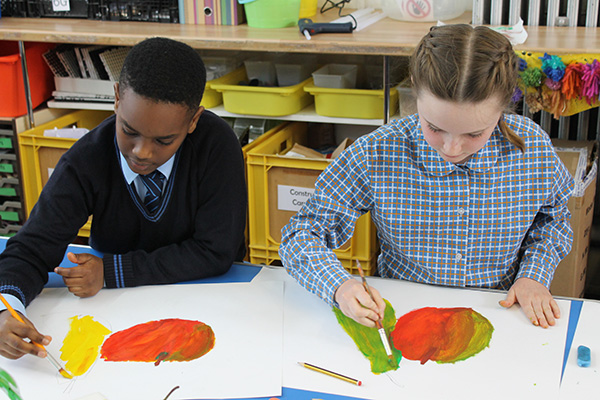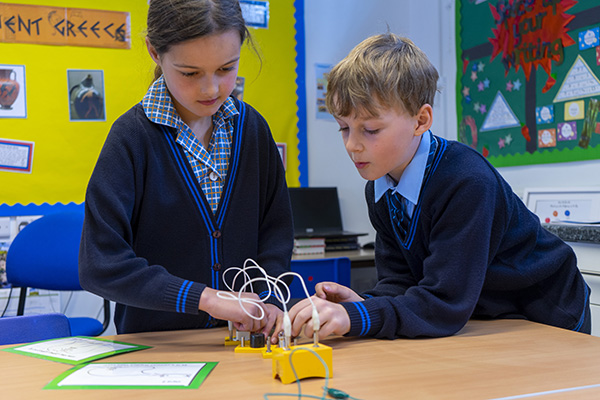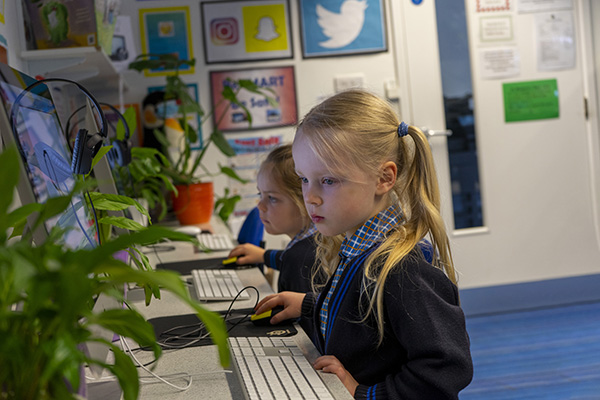By Alex Hopkins, Deputy Head Academic
One of the ongoing debates in education revolves around the question of breadth versus depth when it comes to curriculum design. Is it better to foster a deeper understanding in subjects (depth) or expose our pupils to a wide variety of concepts (breadth)?

Needless to say, a consensus between educationalists has not been reached but, over the past decade or so, a shift towards the concept of deeper learning or ‘mastery’ has been in favour. Any successful curriculum should certainly be meticulously designed and planned to foster higher order thinking and a deep level of understanding. However, an exposure to a breadth of topics, particularly in the Early Years when children’s brains are still developing, is also vital in building those foundations and piecing together the building blocks to allow our pupils to become lifelong learners and achieve maximum impact from their education. The links which we can organically foster in a well-designed, broad and balanced curriculum help children to solidify their learning as well as providing them with an opportunity to learn topic areas in a more open ended, exploratory fashion rather than simply relying on teacher-led instructional direction. In this model, the process and the journey are just as important as the end result.

Here at St Margaret’s, we endeavour to find that ‘sweet spot’ between depth and breadth. Our minds work through making connections; the more we know about the details of one area of study, the easier it is to grasp other areas of study. An example we might see in the classroom could be within Science. To pass an exam, it is true that children can learn and retain answers to a variety of questions in depth, but a true understanding of Science can only be revealed by setting up your own experiments, making your own predictions and observations by drawing on your breadth of knowledge, interpreting your results to decide what it all means and then applying that knowledge in other contexts to make connections. Processes such as this allow pupils to demonstrate their curiosity and perseverance alongside independence of mind and a total confidence in their own observations. By memorising data and facts, anyone can pass a Science exam, but that alone does not make a scientist.

Chris Quigley, a leading specialist in the primary curriculum writes:
“A successful curriculum means providing children with increased cognitive challenge, allowing them to apply the skills which they have learnt independently in a range of contexts rather than moving them onto the next skill needlessly, when they have not truly mastered it.”
This ideology is one which we adopt at St Margaret’s and our pupils are incredibly fortunate to be taught by Specialist Subject Teachers in Art, Modern Foreign Languages, Music, Sport and Computing. These are areas of the curriculum our Specialists are passionate about and in which they are highly qualified and experienced. This specialist teaching helps our pupils to develop deeper and broader subject knowledge and make connections. This, coupled with top-class facilities, means that we are fortunate enough to provide a curriculum which meets that ‘sweet spot’ between depth and breadth and which promotes a state of ‘Flow’ where pupils unconsciously achieve an optimal state of learning and cognitive challenge. Combine this with the quality-first teaching from our Class Teachers in core areas of the curriculum and we are privileged to find ourselves in a position where we are enabling our young people to acquire and develop the knowledge, skills and values that they will need to prepare themselves for lives in an often unpredictable and challenging global context.

Helena Harris, Head of Art & Design comments:
“Art develops focus, discipline, problem-solving and perseverance. These are all valuable life skills that help children prepare for their future and beyond. Specialist art teaching does not simply mean showing children how to draw and paint; it means sharing your passion for the subject and helping each individual child to explore and experiment so that they discover what interests them and learn to trust in their own creative choices.”
Hilary Gibbin, Head of Performing Arts, adds:
"Music and the performing arts are powerful tools in enabling children to express themselves creatively throughout their lives and to develop their personal confidence. Aural awareness, analysis and performance skills are all transferable and carefully nurtured through a set of activities which, as a specialist, I am constantly evolving. My own training and experience provide me with a strong basis of knowledge and skill to share with every pupil, according to individual need, and extend the talented by challenging them appropriately."
Much of my work since joining St Margaret’s has been to work with our teachers to review our curriculum to ensure it is not only engaging and exciting for our children, but to also ensure it inspires excellence and motivates our pupils to be the best they can be whilst maintaining this careful balance between depth and breadth. For example, our redesign of the Pre-Prep curriculum means we have had the opportunity to work collectively to design and plan many opportunities for essential knowledge, skills and understanding to be gained in every subject for depth and across subjects for breadth. Evidence to date is showing that, since the children are being given opportunities to revisit and build upon their previous learning and apply them across a range of contexts, they are developing a deeper understanding of the skills and processes within each subject and those connections are happening. As we work to increase the breadth of children’s knowledge, by default, we also increase their depth.

In his previous article, Mr Bromwich discussed the science behind positive psychology and pupil well-being and the promotion of the shift from traditional psychology, which prioritises what can go wrong, to focusing on instead what can go right. We place high priority on ensuring children’s physical and mental well-being are met and understand that they will not be successful learners unless they are emotionally secure. A broad and balanced curriculum which allows the children to succeed can only serve to promote this ideology. It provides us with the opportunity to challenge our children to become independent, well-rounded individuals who take ownership of their learning and become deep thinkers who are also able to apply this thinking across a broad range of topics through exploration, collaboration and self-reflection. This approach allows our pupils to strike that balance between both ends of these spectrums in order to fulfil their potential, achieve maximum impact from the curriculum and help them lead happy, successful lives.